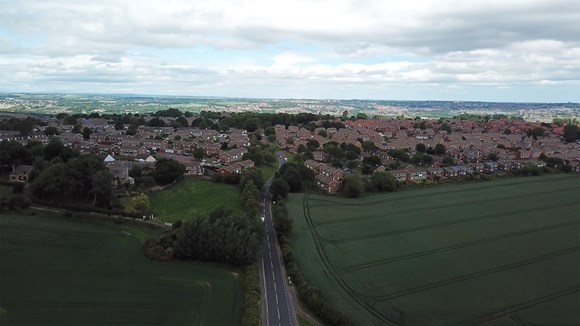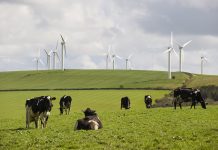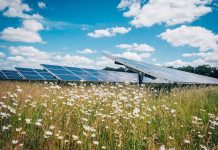A Gateshead community is this morning at the centre of Northern Gas Networks’ successful trial of hydrogen mingled into domestic supply.
For nearly twelve months, 668 homes in Winlaton, plus its nineteenth-century Anglican church and the community’s West Lane Primary school all received hydrogen in concentrations up to 20% mixed in with majority ‘natural’ gas. No changes were needed to any boilers or pipework.
Unlike ‘natural gas’, which is composed largely of methane, hydrogen produces neither carbon monoxide nor carbon dioxide when burned.
Producing no carbon at point of use, hydrogen is at the centre of the government’s Hydrogen Strategy launched last year. It carries high hopes as a key enabler of the government’s target of Net Zero carbon emissions by 2050.
Heating homes, offices and factories is currently responsible for around a quarter of Britain’s carbon emissions.
Northern Gas estimates that, if its HyDeploy trial were to be rolled out across Britain, about 6 million tonnes of CO2 emissions could be avoided every year. That’s the equivalent of taking 2.5 million cars off the roads.
Gas appliances are designed to operate with a blend of up to 23% hydrogen. But NGN’s HyDeploy pilot needed dispensation from Ofgem, since the Gas Safety Management Regulations dating from 1996 limit hydrogen pumped through public pipes to a miniscule 0.1%.
Rules on hydrogen vary across the EU; but not for first time, Britain is less future-minded our neighbours. In parts of the Netherlands, up to 12% hydrogen is already permitted in public pipes.
Ministers have earmarked 2023 for a decision on how far to lift Whitehall’s effective ban.
Hydrogen is a step back to the future. It was a major component in ‘town gas’, gas created from coal and the main heating source for Britain’s homes & industry before North Sea gas started to be pumped ashore in the 1960s. Before then, hydrogen made up as much as 60% by volume of the gas warming Britons at rest and in the workplace.
Winlaton’s customers continued to use their gas supply and appliances as normal over the eleven months, without any changes needed to devices such as pumps, meters, boilers, cookers or fires.
Biba Thompson, supervising officer for a sheltered housing scheme in Winlaton, enthused: “There was no difference to our gas when it contained the hydrogen.
“Everyone here was enthusiastic about doing their bit to reverse the effects of climate change and agreed that it was great that our small village in the North East was chosen for such a ground-breaking pilot,” the Winlaton resident went on.
For NGN, its hydrogen programme manager Fergal O’Donovan was cock-a-hoop: “We’re delighted to have successfully completed blending hydrogen into the gas supply at Winlaton”.
Thanking the villagers for their participation and support, O’Donovan added: “The recent unprecedented hot weather has brought the need to tackle climate change to the forefront of people’s mind. This project has demonstrated that hydrogen blending can play a role in decarbonising heat with no disruption”.
The HyDeploy programme began before lockdown in autumn 2019 as a trial over a closed network serving Keele University’s campus in Staffordshire. One hundred homes and 30 commercial buildings successfully used a hydrogen blend for eighteen months.
Supplier Cadent partnered on that phase. Director of strategy Dr Angela Needle said today: “We’ve been thrilled to pass the baton from the first ever hydrogen blending trial at Keele to Northern Gas Networks who have successfully completed blending into the gas network in the village of Winlaton. “This project is the culmination of a huge amount of work putting consumers at the heart of the energy transition”.
“By blending hydrogen into the gas network, the people in Winlaton could start using a greener gas without having to make any changes to their home or the way they use their heating and cooking.
Dr Needle said Winlaton added to evidence which gas companies will put to government to enable next year’s decision on H2 share of homes’ mix.
HyDeploy continues. Amid projects already under way, a show home at Low Thornley near Gateshead runs on 100% hydrogen fuelling its boiler, cooker, hob, fire and even a barbecue.
Earlier this year Ofgem shortlisted two UK locations for a Hydrogen Village demonstration, which will see natural gas swapped to hydrogen in around 2,000 properties.
The Hydrogen Village trial will start in 2025 and is expected to run around two years. The shortlisted locations are an area of Redcar on Teesside and Whitby, Ellesmere Port on Merseyside.




